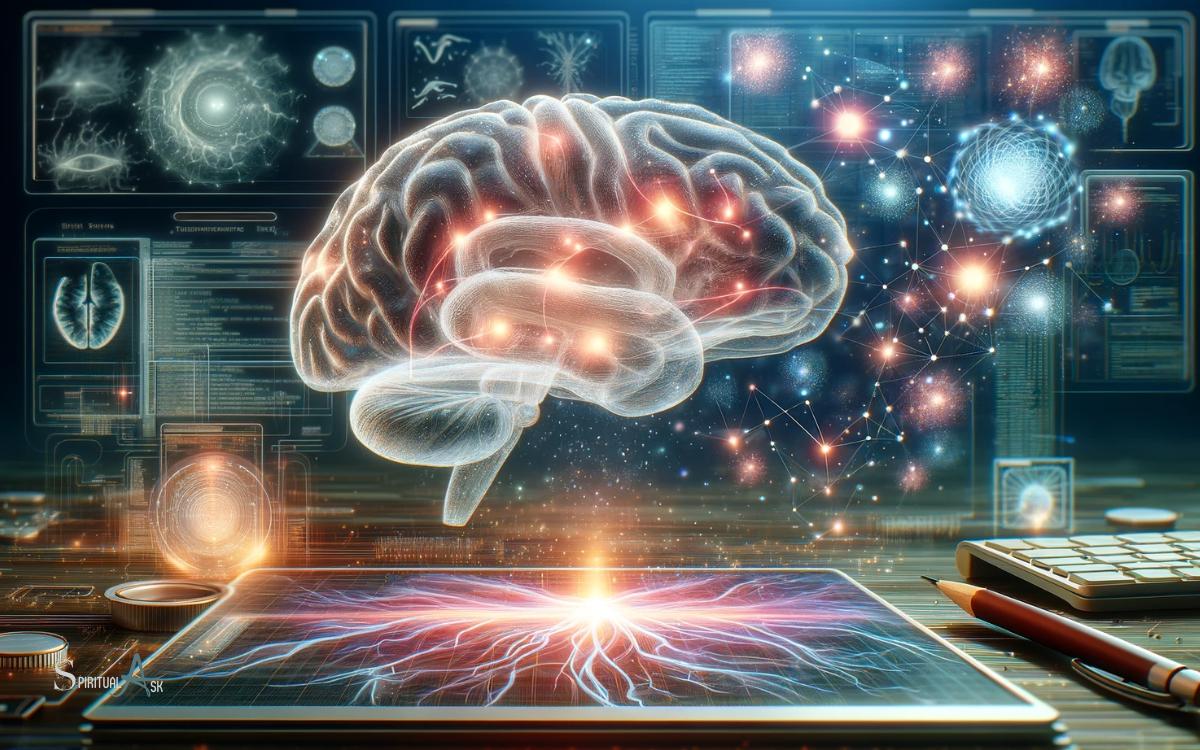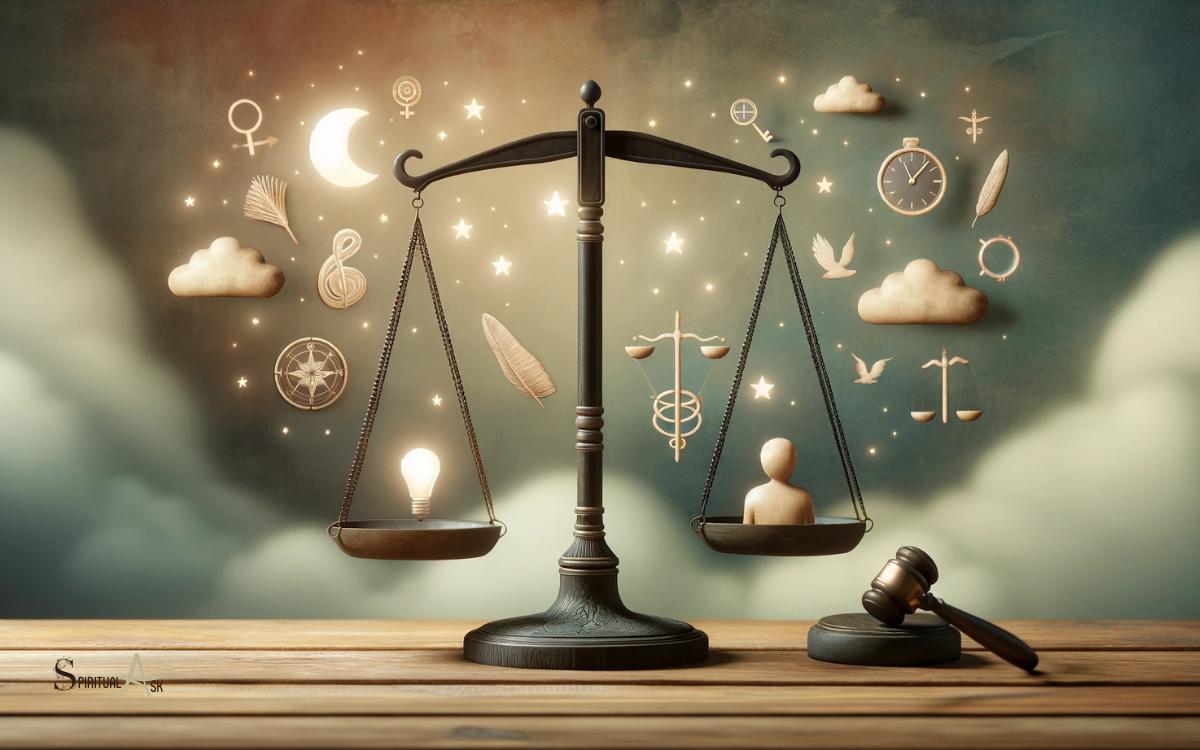Are Dreams Spiritual Messages? Subjective !
Dreams are a complex phenomenon and their interpretation as spiritual messages is subjective and varies across different cultures and belief systems.
While there is no scientific evidence to conclusively prove that dreams are spiritual messages, many individuals and traditions consider dreams to be meaningful communications from a higher consciousness or the subconscious mind.
The concept of dreams as spiritual messages has its roots in ancient civilizations and has been a topic of interest throughout history.
For example:
However, from a scientific perspective, dreams are generally understood to be a product of the brain processing information during sleep.
Psychological theories, such as those proposed by Sigmund Freud and Carl Jung, interpret dreams as expressions of unconscious desires or a means to resolve inner conflicts.
While the spiritual interpretation of dreams is deeply personal, bridging the gap between the mystical and the empirical remains an intriguing area of human curiosity and exploration.

Key Takeaway
Historical Beliefs About Dreams
Throughout history, across various cultures and belief systems, dreams have been regarded as conduits for spiritual messages.

In ancient Egypt, dreams were seen as divine communications, and the Egyptians believed that they could provide insights into the future or guidance from the gods.
Similarly, in ancient Greece, dreams were considered direct messages from the gods, and temples were even built to honor the god of dreams, Morpheus.
In the Judeo-Christian tradition, dreams are mentioned in the Bible as a means through which God communicates with individuals, such as Joseph’s dream of interpreting Pharaoh’s dreams in the book of Genesis.
These historical beliefs about dreams as channels for spiritual messages underscore the enduring significance of dreams in various cultural and religious contexts.
Interpretation of Dream Symbols
Understanding the interpretation of dream symbols is crucial for unlocking the hidden messages within our dreams. Symbolic meanings in dreams often carry profound significance and can provide valuable insights into our subconscious thoughts and emotions.

Symbolic Meanings in Dreams
Interpreting dream symbols involves identifying and analyzing the underlying meanings represented by various elements within the dream. Dreams often contain symbols that can be interpreted to reveal deeper insights into our subconscious thoughts and emotions.
Here are some common dream symbols and their potential interpretations:
| Symbol | Interpretation |
|---|---|
| Water | Emotions, purification |
| Flying | Freedom, spiritual growth |
| Teeth | Confidence, power |
| Snakes | Transformation, healing |
Understanding the symbolic meanings in dreams can provide valuable insights into our inner world and help us navigate our waking life with more clarity and understanding. Next, let’s explore the process of finding hidden messages within dreams.
Finding Hidden Messages
The process of uncovering hidden messages within dreams involves closely analyzing and interpreting the symbolic meanings of dream symbols.
When interpreting dream symbols, it is essential to consider the personal significance of each symbol, as symbols can have different meanings for different individuals.
Additionally, paying attention to the emotions evoked by specific symbols can provide valuable insights into their interpretation.
Lastly, exploring the context in which the symbols appear in the dream can offer clues about their intended message.
Understanding the hidden messages in dreams requires a thoughtful and introspective approach, as well as an openness to exploring the deeper layers of the subconscious mind.
This leads us to the subsequent section about ‘understanding dream imagery’.
Understanding Dream Imagery
An essential aspect of uncovering hidden messages within dreams involves closely analyzing and interpreting the symbolic meanings of dream symbols. This requires delving into the personal significance of each symbol and considering the emotions evoked by specific symbols.
Dream imagery often contains symbols that are deeply personal, rooted in individual experiences, memories, and emotions. Understanding these symbols requires introspection and self-awareness.
For instance, a dream about flying could represent a sense of freedom for one person, while for another, it might symbolize a desire to escape from a challenging situation.
It’s important to consider the context of the dream and the dreamer’s current life circumstances when interpreting dream symbols.
Scientific Explanations for Dreams

One widely accepted view posits that dreams are a reflection of the brain’s activity during sleep. There are several scientific explanations for dreams:
- Memory Processing: The brain may use dreams to process and consolidate memories from the day, helping to store important information and discard unimportant details.
- Emotional Regulation: Dreams may serve as a way for the brain to regulate emotions, allowing individuals to work through difficult or unresolved feelings in a safe subconscious environment.
- Neurological Activity: During REM sleep, the brain experiences increased neurological activity, which may result in the creation of dream narratives as a byproduct of this heightened state.
These explanations provide insight into the potential functions and benefits of dreaming from a scientific perspective.
Connection Between Dreams and Spirituality
Dreams have long been a subject of interest in various spiritual traditions, with many believers attributing them to the communication of divine or supernatural messages.

Across cultures, dreams are seen as a means of connecting with the spiritual realm, providing insights, guidance, or warnings.
In spirituality, dreams are often considered a way for the subconscious mind to receive messages from a higher power or the universe. Many spiritual practices involve rituals or techniques to enhance the experience of receiving and interpreting these messages.
Dream interpretation is a common practice in spiritual traditions, as individuals seek to discern the spiritual significance behind their dreams.
The connection between dreams and spirituality underscores the belief that there is a deeper, metaphysical dimension to the human experience, where dreams serve as a conduit for spiritual communication and revelation.
Personal Experiences With Spiritual Dreams
Many individuals have reported profound personal experiences with spiritual dreams, often finding deep significance in the symbols that appear. These dreams can have a lasting impact on their waking lives, influencing their decisions, perspectives, and emotions.

Exploring the significance of dream symbols and their impact on waking life can provide valuable insights into the spiritual messages conveyed through dreams.
Significance of Dream Symbols
The significance of dream symbols becomes evident through individuals’ personal experiences with spiritual dreams. These experiences often reveal the deep and personal meanings that symbols hold within the context of one’s life and spiritual journey.
Some common examples include:
- Animals: Many people report encountering animals in their dreams, each of which may carry a specific message or symbolism based on the animal’s behavior or cultural significance.
- Numbers: Numbers appearing in dreams can hold personal significance or convey universal spiritual meanings, such as the number 3 representing unity or the trinity in various spiritual traditions.
- Natural Elements: Dreams often feature elements like water, fire, or wind, each carrying symbolic meanings related to emotions, transformation, or spiritual energy.
Impact on Waking Life
Numerous individuals have reported profound impacts on their waking lives as a result of their personal experiences with spiritual dreams.
These dreams have been known to bring about a sense of peace, direction, and understanding, leading to significant changes in behavior, relationships, and overall well-being.
Below is a table illustrating some common personal experiences with spiritual dreams and their impact on waking life:
| Personal Experience | Impact on Waking Life |
|---|---|
| Feeling of guidance and clarity | Greater sense of purpose and direction |
| Encounter with deceased loved ones | Emotional healing and closure |
| Symbolic messages or warnings | Heightened intuition and decision-making |
| Spiritual awakenings or revelations | Stronger connection to faith and inner self |
| Premonitions of future events | Preparedness and proactive decision-making |
These experiences often lead individuals to seek a deeper understanding of the spiritual messages conveyed in their dreams.
Moving forward, it’s important to explore techniques for understanding spiritual messages in dreams.
Techniques for Understanding Spiritual Messages in Dreams
One effective technique for understanding spiritual messages in dreams is to keep a dream journal and regularly reflect on the symbolism and emotions present in the dream content.

By maintaining a record of your dreams, you can start to identify recurring themes or symbols, providing insight into the messages being conveyed.
Additionally, seeking guidance from spiritual mentors or dream interpreters can offer valuable perspectives on the spiritual significance of your dreams.
Engaging in meditation and mindfulness practices can help in fostering a deeper connection with your inner self, enabling a better understanding of the spiritual messages hidden within your dreams.
- Record Your Dreams: Keeping a dream journal helps in identifying patterns and recurring symbols.
- Seek Guidance: Consulting spiritual mentors or dream interpreters can provide valuable insights.
- Practice Mindfulness: Engaging in meditation can aid in connecting with the spiritual aspects of your dreams.
Ethical and Moral Considerations in Dream Interpretation
Ethical and moral considerations play a crucial role in the interpretation of dreams. When delving into the realm of dream interpretation, it is essential to approach the process with respect for the dreamer’s autonomy, privacy, and cultural beliefs.

Respecting confidentiality is paramount, as dreams can reveal deeply personal and sensitive information. It is important to obtain clear consent before interpreting someone else’s dreams, ensuring that the individual feels comfortable and in control of the process.
Additionally, dream interpreters should refrain from imposing their own moral or ethical beliefs onto the dreamer’s experiences, instead approaching the interpretation with an open mind and a non-judgmental attitude.
Upholding ethical standards in dream interpretation fosters a safe and supportive environment for individuals to explore the potential spiritual messages within their dreams.
Can the Colors in My Dreams Have Spiritual Meaning?
Dream colors can indeed hold spiritual meanings, reflecting your inner state, emotions, and life circumstances.
Various traditions and belief systems attribute specific significances to colors seen in dreams, suggesting they are messages from the subconscious or even the divine.
- Red: Passion, anger, or warning
- Blue: Peace, spirituality, or healing
- Green: Growth, healing, or prosperity
- Yellow: Joy, energy, or caution
- Purple: Spirituality, nobility, or enlightenment
Remember, the interpretation of dream colors is highly personal. Reflecting on how these colors make you feel can offer deeper insights into their meanings for you.
Conclusion
Dreams have been viewed as spiritual messages throughout history and have been interpreted through various cultural and religious beliefs.
While science offers explanations for the phenomenon of dreaming, many individuals still find meaning and guidance in their dreams, connecting them to their spirituality.
Understanding dreams as spiritual messages requires careful consideration of ethical and moral implications, as well as the use of techniques such as meditation and journaling.
Dreams are like a mirror reflecting our inner spiritual landscape.






